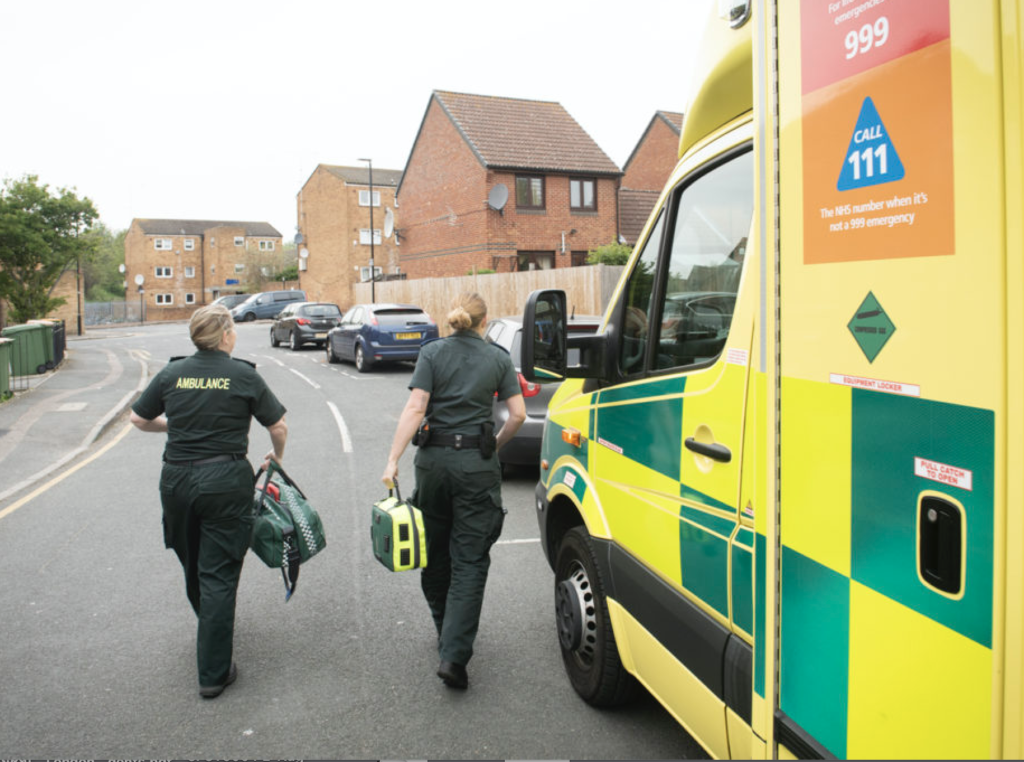No matter where you look there are signs that the National Health Service is deep in crisis, with staggering job vacancy rates, record waiting lists for elective care and dismal A&E performances. On the back of two immensely challenging pandemic years, this winters the NHS is dealing with the most difficult period in its history. With warnings of a “tripledemic” of Covid-19, flu and respiratory syncytial virus bringing continued pressures, war rooms are being set up to coordinate services.
Staff, including nurses, who were so heroic in battling Covid, have been forced into taking strike action as they fight for decent pay and improved working conditions for better patient safety. Many, myself included, were hoping that following the height of the pandemic, when people were clapping for key workers on their doorsteps, that we would see a fundamental shift in how NHS workers and others were treated by the government. Yet we continue to hear shocking stories of hospitals setting up food banks for staff as they struggle to afford basic essentials because of inflation and ten years of stagnant wages. This should simply not be happening.
The issues are particularly acute in London. With 13% of posts unfilled, London has the highest vacancy rate in England and none of our major A&E centres is close to meeting their four hour waiting time targets. The Royal College of Nursing has attributed the staffing issues facing our city to the inflated cost of housing in the capital. Private rents have increased by more than 16% this year and many are finding it unaffordable to be a nurse, or healthcare professional in London.
While the impact of Covid is still being felt, the crisis this winter goes much deeper. A government-commissioned report by the King’s Fund found that a “decade of neglect” has left the NHS unable to tackle the care backlog of 7.2 million patients. This is putting patient safety at risk as over-stretched services struggle to cope with demand. In the past few months we have seen damning evidence of the severity of the crisis. In November the Care Quality Commission’s annual State of Health report painted a bleak picture of a gridlocked health system which is no longer able to function effectively.
Alongside this the social care crisis continues to grow, with knock-on effects for the entire care system from poor after-care, to delayed hospital discharges, all the way back to A&E waiting times. The government is failing to acknowledge the severity of the situation. It must act immediately to address waiting times and vacancy rates in London and urgently tackle the social care crisis or things will only get worse for Londoners .
It does not have to be this way. The NHS has faced crises before. The way it handled the Covid vaccine rollout shows that it can still deliver under extraordinary circumstances. With a properly funded and fully resourced long-term plan we can return the NHS to its place as the world-leading healthcare provider.
I am urging ministers to start this process by giving healthcare workers the proper pay rise they deserve in order to resolve the strikes. What has been offered is so far below inflation it amounts to a real terms pay cut.
Currently they are refusing to even get around the negotiating table and that is risking patient safety. I have full faith in the NHS to always keep patients safe, but a weakened workforce will compromise patient care. A willingness to offer fair pay would ensure we have enough staff in hospitals and aboard ambulances to give Londoners access the care they need. This must be a key focus of the government. It cannot wait. We need action now.
Krupesh Hirani is the London Assembly member for the Brent & Harrow constituency and health spokesperson for the Assembly’s Labour group. Follow Krupesh on Twitter.
On London strives to provide more of the kind of journalism the capital city needs. Become a supporter for just £5 a month. You will even get things for your money. Details here.


A pay rise alone will not address the staffing problems in the NHS. The rationing policies of the Royal Colleges, raising pass marks to limit the numbers qualifying via NHS teaching hospitals and limiting the number of resits, thus forcing dependence on those who qualify abroad, also need to be addressed. This policy has just caused 25% of one cohort of potential consultants (each with 10 – 15 years experience as a junior doctor) to leave the NHS to qualify overseas